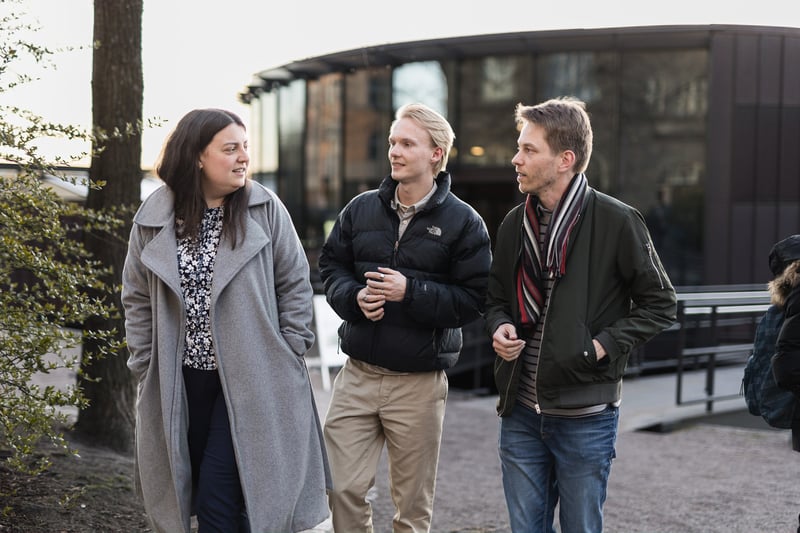On a sunny day in early May, data scientists of twoday gathered in Helsinki for a full day of interesting talks. Topics ranged from data strategy to Machine Learning Operations (MLOps), and of course individual success stories. It was great to see how people meeting each other for the first time were very much on the same frequency and shared similar experiences. This blog post will tell you a little bit more about our efforts to build a strong data science community in twoday.
But first – what is data science?
Data science, advanced analytics, artificial intelligence, prescriptive analytics, machine learning, mathematical optimization – no matter what your preferred term is, this is the fancy stuff everyone wants to do with their data. Data science is a bit similar to the high school dating scene though, where the buzz and chatter about it often outpace the real experiences taking place.
What does this have to do with IT consulting?
There has been a move in the market to highlight domain expertise when conducting a data science project, which often means that the data scientists used are in-house experts. That's kind of bad news for IT consultants, who are left with the data engineering and other "foundation work". This trend will reverse sooner later, as trends always do (the world is all sine waves with different amplitudes), and one way it may happen is through the rise of data science consultants and MLOps.
A data science consultant is someone with hands-on tech experience who has also seen how this experience interfaces with business processes. Having seen what works and what doesn't in different kinds of organizations gives a wider perspective, which is a good complement to the deeper perspective of an in-house data science expert. These talents are widely sought-after and provide a lot of value, but the market isn’t quite there yet.
The hurdle we’re facing is bridging the gap from our current situation to one with lots of data science consultant demand. To do so we need to keep our data scientists motivated and their toolbox up-to-date.
Data scientists of twoday – unite!
So what does this all have to with a data science network? As we've seen from the internet, there's no subculture too small to create its own online community. With a large enough population, even small fractions add up to large numbers. The large population in this case is our fresh-from-the-oven IT consulting giant, twoday, with 2500+ consultants. The small fraction is the group of data science consultants, spread across the different countries.
Why it makes sense
twoday is a company that puts people first and wants to be a solutions partner to our customers. Since our data scientists are people (no AI-powered consultants here yet), their engagement is of high importance. It's easier to stay motivated when there's a network of like-minded people. The twoday data science network provides our data science consultants a forum to learn about modern technologies, share customer stories, vent about shitty data - in short, to get peer support.
Bringing people together
twoday was divested (carved out) from the Visma Group. Visma's way of operating is structured around a portfolio model, i.e. there's a set of independent companies with their own go-to-market plans and actions. twoday is different from this - we have one strong brand and more coherence in many of our actions. This requires lots of communication, and not just for the sake of communication, but communication that brings us closer together and creates value. Sharing best practices among peers is an example of that. Already from our first few meetings it has become clear that data scientists in all our locations are facing similar challenges. We have also identified business opportunities thanks to these discussions.
Becoming a solutions partner requires that we don't just provide resources to our customers, but guide them towards the future, as we in many cases already do. Unless you've been living under a rock since Q4/2022, it should be obvious why this is not possible anymore without AI and data science. Data science projects often aim at changing the way a business operates, usually to increase its productivity. When the field matures, I expect data science will migrate more towards traditional IT consulting (most of the volume is in replacing existing data science solutions with new, more efficient ones), but in 2023 many organizations are charting unknown territories, which requires vision and buy-in from the leadership.
Make some noise!
Further strengthening the position of the data science community in twoday is an exciting task. It requires an understanding of where we are and what we do. Making us data scientists aware of each other is crucial in this process, and so is spreading awareness internally and externally about our contributions and value.
Questions about our data science network? Don´t hesitate to contact Joonas Ollila of twoday Finland:
joonas.ollila@twoday.com
+358 44 230 3847
